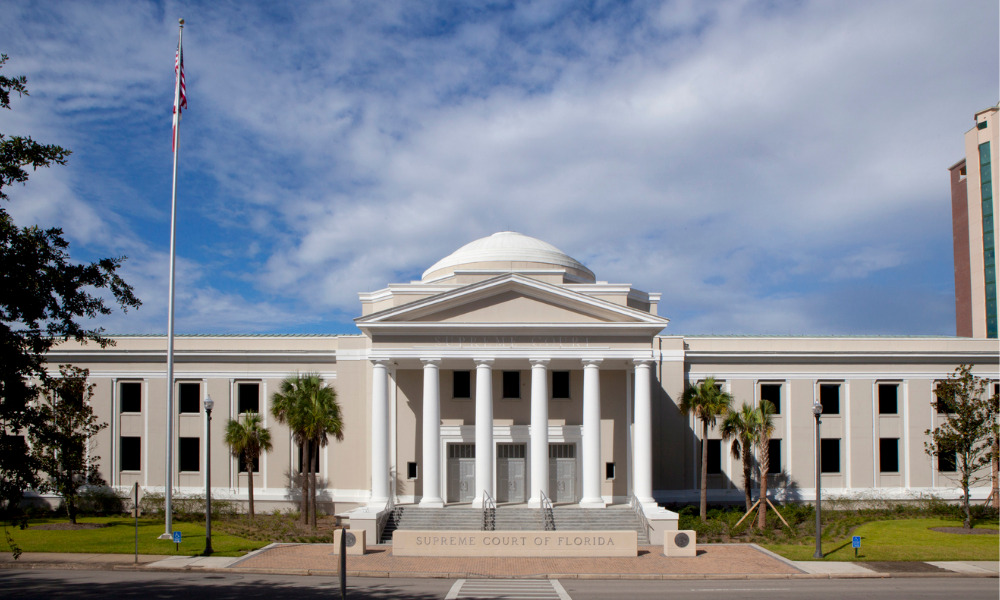
The decision was a win for the Florida Bar after a three-year legal battle

The Florida Supreme Court has slammed Miami company TIKD for the unauthorised practice of law.
The company, which was founded by nonlawyer Christopher Riley, had developed an app and put up a website to link drivers slapped with traffic tickets to lawyers. Users could upload photos of their traffic tickets and have their contact information passed on to a Florida-licensed lawyer for a fixed percentage of the ticket’s face value.
In a 4-3 decision released last Thursday, the court determined that TIKD was not permitted to extend such services to the public as a nonlawyer organisation, and permanently barred it from doing so moving forward.
“The inherent conflict that arises when a nonlawyer either derives income from or exercises a degree of control over the provision of legal services presents a substantial risk that the public will be exposed to and harmed by ‘incompetent, unethical, or irresponsible representation’,” Judge Alan Lawson wrote in the decision.
The ruling was a win for the Florida Bar, which first brought the matter to the courts in 2018. In its petition, the bar had accused TIKD of practising law without authorisation and of representing itself to the public as an organisation qualified to offer legal services through its website and ads.
The referee initially appointed to examine the petition sided with TIKD, determining that TIKD merely offered administrative and financial services and that its payment of attorney fees on clients’ behalf was in line with the Florida Bar’s allowance for third-party payments. Moreover, the referee ruled that the legal services were provided by attorneys licensed to practise in Florida – therefore, TIKD was not putting its users at risk of receiving unqualified advice.
However, the Florida Supreme Court countered that TIKD could significantly impact whether a user obtained legal representation in a timely manner, and could also affect the quality of legal services received.
“TIKD advertises the legal services that are at the core of its business model directly to the public and thereby directly solicits drivers with legal problems. When a driver engages its services, TIKD conducts a business review of his or her legal matter to determine whether it can profitably handle the case (with profitability as the only apparent criterion considered),” Lawson wrote. “TIKD could routinely miss critical deadlines that substantially impair the legal rights of its clients. It could also fail in its contractual obligation to pay fines owed, resulting in a client’s loss of driving privileges or other legal sanctions. However, because TIKD is not a lawyer, this court would be powerless to act for the protection of the public.”
The court added that this nonlawyer status also shielded TIKD from responsibilities towards users’ money, and determined that the company did not actually use third-party funds to pay the attorney but simply took a cut from the users’ payment to the company.
“If a lawyer took up-front money from a client to satisfy monetary obligations anticipated to be incurred at the conclusion of a legal proceeding, the lawyer would be required to hold that money in trust for the benefit of the client,” Lawson explained. “Because TIKD is not a law firm, there are no protections in place to safeguard the money of these legal clients and thereby assure that the money is actually available to satisfy the future legal obligations associated with the legal matter.”
The court also ruled that TIKD’s advertisements were likely to mislead a reasonable person into thinking that the company’s services could be a substitute for hiring one’s own lawyer.
“In the end, the reasonable protection of a driver’s legal rights and interests in a traffic citation matter require that the type of services TIKD provides and advertises to the public be performed or overseen by a person who possesses a knowledge and skill in the law greater than that possessed by the average citizen,” Lawson wrote. “As a nonlawyer, TIKD simply lacks the skill or training to ensure the quality of the legal services provided to the public through the licensed attorneys it contracts with, nor does it possess the ability to ensure compliance with the Rules of Professional Conduct.”
According to the Associated Press, TIKD’s status as a registered corporation has been revoked by the Florida Division of Corporations. The company’s website is also no longer accessible.